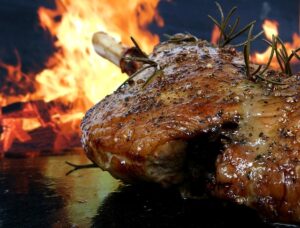Introduction
When it comes to the nutritional content of raw milk, one important aspect that many people are curious about is the protein content. Protein is an essential macronutrient that plays a crucial role in various bodily functions, including muscle growth and repair. In this article, we will dive deeper into the topic of how much protein is present in raw milk and explore its significance for our overall health.
Protein Content in Raw Milk
Raw milk is known for its rich nutrient profile, and protein is no exception. The protein content in raw milk can vary depending on factors such as the breed of the cow, its diet, and other environmental factors. On average, raw cow’s milk contains about 3.2 grams of protein per 100 milliliters (ml). This means that a standard 8-ounce glass of raw milk would provide approximately 8 grams of protein.
It’s important to note that the protein in raw milk is considered a complete protein, meaning it contains all the essential amino acids that our bodies need. These amino acids are the building blocks of protein and are necessary for various physiological processes.
Benefits of Protein in Raw Milk
Protein is essential for the growth, repair, and maintenance of our body tissues. Here are some of the key benefits of consuming protein-rich raw milk:
Muscle Growth and Repair: Protein is crucial for muscle growth and repair. It provides the necessary amino acids to support the synthesis of new muscle tissue and aids in the recovery process after exercise or physical activity.
Improved Bone Health: Protein plays a vital role in maintaining bone health. It helps in the formation and maintenance of bone tissue, making it important for individuals of all ages, especially children and older adults.
Enhanced Immune Function: Protein is involved in the production of antibodies and immune cells, which are essential for a strong immune system. Consuming raw milk, which is rich in protein, can help support immune function and protect against infections.
Satiety and Weight Management: Protein is known to promote feelings of fullness and satiety, which can help in weight management. Including protein-rich foods like raw milk in your diet can help curb hunger and prevent overeating.
Other Nutrients in Raw Milk
In addition to protein, raw milk is a good source of several other important nutrients. It contains essential vitamins such as vitamin A, vitamin D, and B vitamins. Raw milk also provides minerals like calcium, phosphorus, and potassium, which are crucial for maintaining healthy bones, teeth, and overall bodily functions.
Conclusion
Raw milk is a nutrient-dense beverage that contains a significant amount of protein. With approximately 3.2 grams of protein per 100 ml, raw milk can be a valuable source of this essential macronutrient. Protein in raw milk contributes to muscle growth, bone health, immune function, and weight management. Along with protein, raw milk also provides a range of other important nutrients, making it a wholesome choice for those seeking a nutrient-rich beverage.
References
– www.ncbi.nlm.nih.gov/pmc/articles/PMC5122229/
– www.healthline.com/nutrition/raw-milk
– www.ncbi.nlm.nih.gov/pmc/articles/PMC5122229/













